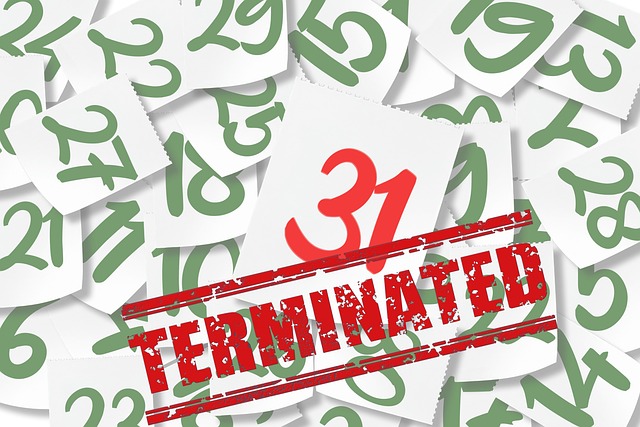Accurate Employment Contracts UK translation services are vital for legal compliance and smooth global recruitment. Certified translations by expert linguists ensure legal validity, mitigate risks, and foster inclusive workplaces. Reputable firms with experience in legal terms and cultural sensitivity offer 24/7 support for efficient, secure document delivery.
In the dynamic landscape of UK employment, understanding legal requirements and ensuring accurate documentation is paramount. This article explores the intricate world of certified translations for employment documents, highlighting their significance in recruitment processes. We navigate language barriers faced by employers, offer insights on choosing reputable translation services, and provide guidelines for hiring professional translators. Discover best practices to avoid common mistakes, ensure cultural sensitivity, and understand the legal implications of accurate employment contract translations in the UK.
- Understanding the Legal Requirements for UK Employment Documents
- The Importance of Accurate Translations in Recruitment
- Navigating Language Barriers: Employer's Perspective
- Choosing the Right Certified Translation Services
- What to Look for in a Professional Translator
- Common Mistakes to Avoid During Translation
- Ensuring Cultural Sensitivity in Work Document Translations
- Legal Implications of Inaccurate Employment Contract Translations
- Efficient Processes for Fast-Track Translation Needs
Understanding the Legal Requirements for UK Employment Documents

When dealing with employment contracts in the UK, understanding the legal requirements for document translation is paramount. Employment contracts are legally binding agreements, and any errors or inaccuracies in translations can have significant consequences. In the UK, there’s a clear need for precise and certified translations to ensure these contracts comply with local laws and regulations.
Employment contract translations should be handled by professional UK translation services that possess expertise in legal documentation. These services employ translators who understand the nuances of employment law and can accurately convey the meaning and intent of the original document. Certified translations come with an official seal, attesting to their authenticity and accuracy, which is crucial for legal validity.
The Importance of Accurate Translations in Recruitment

In today’s globalised job market, companies in the UK frequently recruit candidates from diverse linguistic backgrounds. For these international applicants, accurate and professional translations of employment contracts are essential. A certified translation service ensures that every clause and condition is faithfully represented in the candidate’s native language, removing potential barriers to understanding and ensuring a smooth onboarding process.
This becomes especially critical when dealing with complex legal documents like UK employment contracts. Inaccurate translations could lead to misunderstandings, contractual disputes, or even legal complications. Reputable translation services employ linguists who are not only fluent but also have expertise in legal terminology, guaranteeing that the translated document is as legally binding and comprehensive as the original.
Navigating Language Barriers: Employer's Perspective

In the dynamic landscape of UK employment, where diversity is a strength, employers often find themselves navigating language barriers to on-board talented individuals from around the globe. Accurate and certified translations of essential documents like employment contracts are paramount to ensure compliance, mitigate legal risks, and foster inclusive workplaces.
UK translation services specializing in employment contracts play a crucial role here. They provide not just linguistic proficiency but also an understanding of UK employment laws and best practices. This ensures that translated documents are legally sound and protect both the employer and employee, facilitating smooth transitions for international hires and promoting fairness throughout the entire hiring process.
Choosing the Right Certified Translation Services

When seeking certified translations for UK employment documents, it’s crucial to choose reputable and experienced translation services. Look for providers specialising in legal and business documentation to ensure accuracy and precision. Verifying their credentials, such as membership in professional translation bodies, is essential.
Reputable firms will employ native speakers with expertise in both the source and target languages. They should also offer a range of services, including document collection, translation, certification, and delivery, streamlining the entire process for UK employment contracts. Always request samples or portfolios to assess their quality before committing to any service.
What to Look for in a Professional Translator

When seeking certified translations for UK employment documents, choosing a professional translator is paramount. Look for individuals or companies specializing in Employment Contracts UK translation services, ensuring they possess the necessary qualifications and expertise. Certified translators should be fluent in both the source and target languages, with a deep understanding of legal terminology specific to employment contracts.
Additionally, verify their membership in reputable translation associations, which guarantees adherence to ethical standards and quality control measures. Experience in handling similar documents is also crucial. Reputable translators will employ advanced tools and software to maintain accuracy while meeting deadlines, ensuring your employment contract translations are reliable and legally sound.
Common Mistakes to Avoid During Translation

When translating employment documents for the UK market, it’s crucial to steer clear of common pitfalls that can lead to misunderstandings and legal issues. One frequent mistake is assuming that a word-for-word translation will suffice—language nuances and cultural contexts vary greatly between nations. For instance, specific terms used in employment contracts may not have direct equivalents, requiring creative yet accurate adaptation.
Another blunder involves overlooking industry-specific terminology or legal jargon. Employing translators with expertise in HR and employment law is essential to ensure precise translations that align with UK regulations. Moreover, proofreading and quality assurance processes should never be skipped; these steps catch critical errors and guarantee the translated document’s integrity. Using reputable UK translation services specializing in employment contracts can significantly reduce such risks.
Ensuring Cultural Sensitivity in Work Document Translations

When it comes to certified translations for UK employment documents, cultural sensitivity is paramount. Translations must accurately convey the nuances and legal implications of contracts while respecting cultural contexts. This is especially crucial in a diverse nation like the UK, where employers interact with employees from various ethnic backgrounds and languages.
Employment contract translators should have a deep understanding of both the source and target cultures to avoid misinterpretations or inappropriate language use. They must be adept at translating legal terminology while maintaining cultural integrity, ensuring that documents remain legally sound and respectful. Reputable UK translation services specializing in employment contracts often employ native speakers and subject matter experts to guarantee accurate and sensitive translations.
Legal Implications of Inaccurate Employment Contract Translations

Inaccurate translations of employment contracts can have severe legal implications in the UK, where clarity and compliance with employment laws are paramount. If a translated contract misrepresents the original terms or fails to convey critical information, it may lead to significant consequences for both employers and employees. This could result in contractual disputes, breach of contract claims, or even discrimination lawsuits if essential terms related to rights and responsibilities are not accurately conveyed.
Employment contracts UK translation services must be approached with due diligence, ensuring that qualified translators handle the task. They should possess expertise in legal terminology and an in-depth understanding of UK employment laws to deliver precise translations. Reputable translation companies often employ these measures to guarantee the accuracy and legality of their work, thereby safeguarding against potential risks associated with inaccurate contract translations.
Efficient Processes for Fast-Track Translation Needs

When it comes to fast-track translation services for employment contracts in the UK, efficient processes are key. Reputable UK translation services understand the urgency and sensitivity of such documents and have streamlined workflows to deliver quick turnaround times without compromising accuracy. They employ a team of expert translators who specialise in legal and HR documentation, ensuring that every term is handled with precision and an in-depth understanding of UK employment laws.
These services often offer 24/7 support, multiple language options, and secure digital platforms for document uploads and deliveries. By investing in advanced technology, they can manage large volumes while maintaining quality. This efficiency means employers can swiftly obtain certified translations, facilitating smoother processes for international hires or when dealing with cross-border employment matters.
When it comes to navigating the intricate world of UK employment documents, certified translations play a pivotal role in ensuring fairness and legality. By understanding the legal requirements, employers can avoid potential pitfalls associated with inaccurate or culturally insensitive translations. Choosing the right professional translation service that specialises in employment contracts is key to efficient processes, fast-track turnaround times, and upholding the integrity of these crucial documents. With this guide’s insights, employers are well-equipped to navigate language barriers effectively and foster inclusive recruitment practices within the UK job market.
